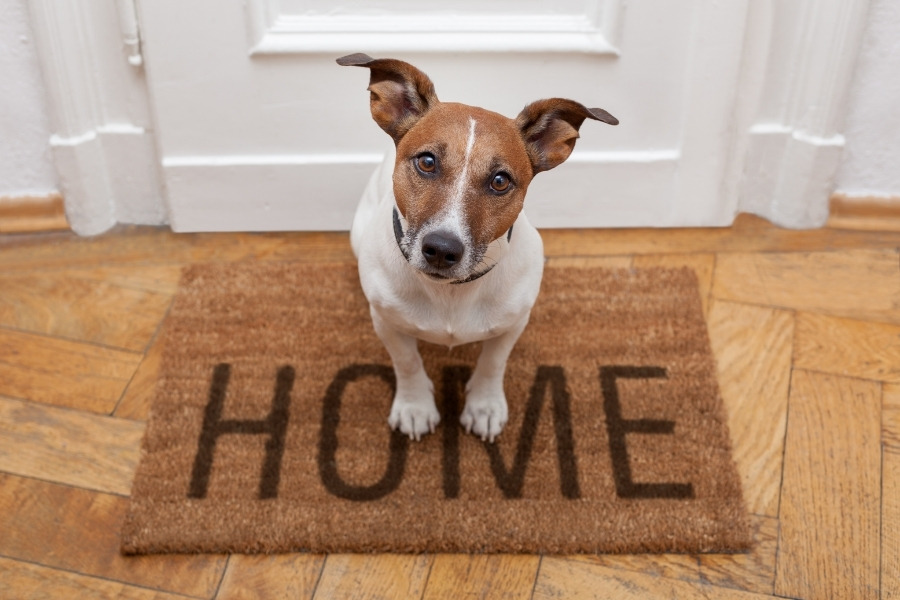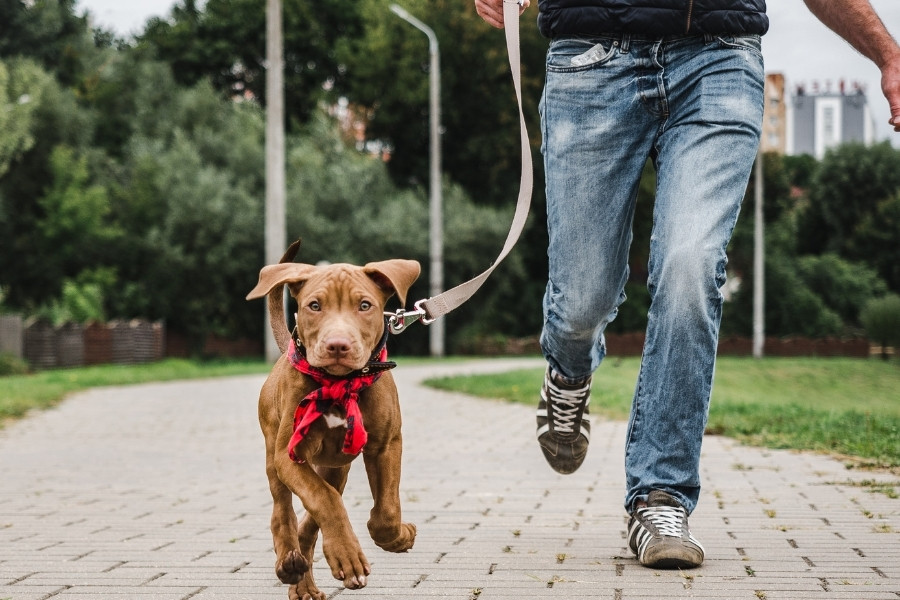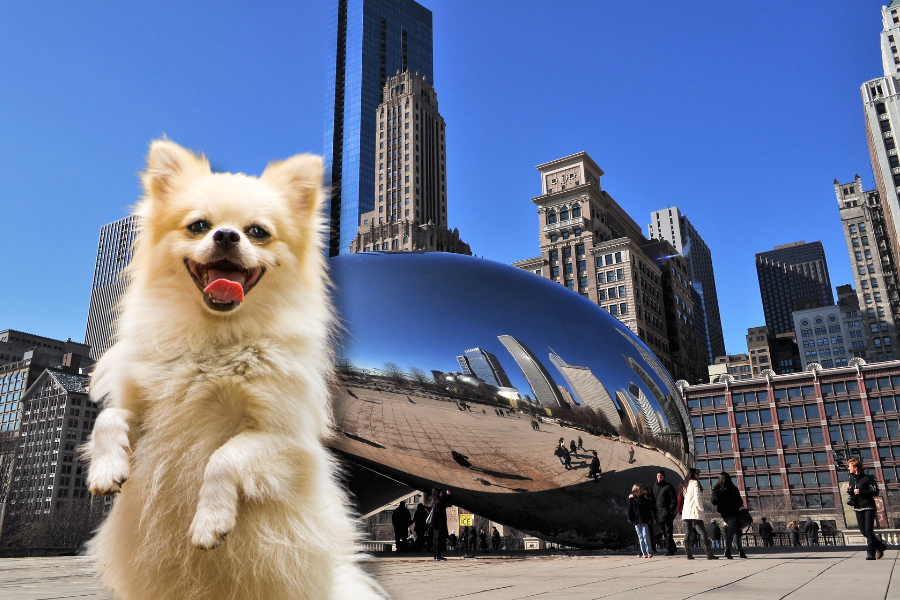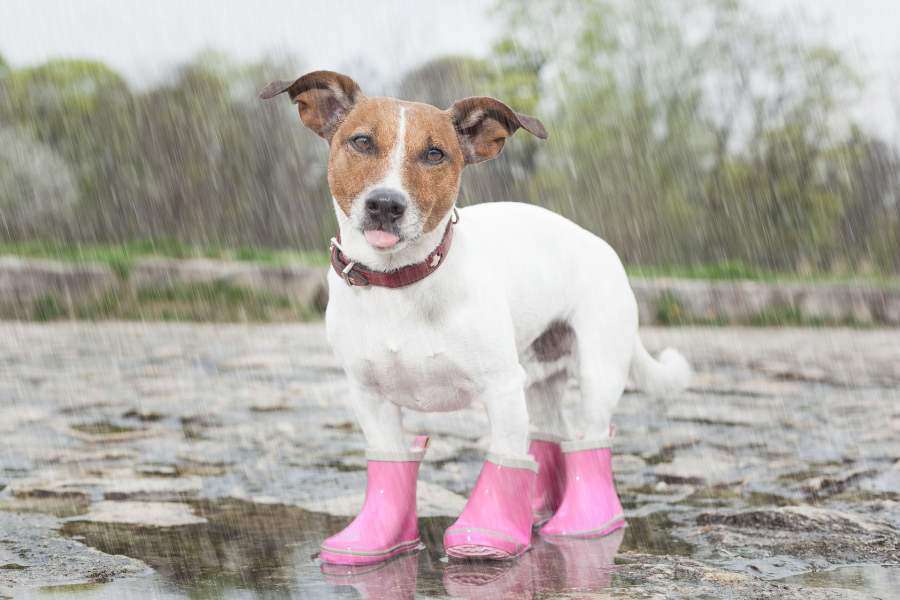
14 Ways to Be A Responsible Dog Owner
- Published on:
- By: ASP Team
September isn’t just about wrapping up the summer, getting the kids (or yourself) back to school, or starting football season. The AKC has also termed it Responsible Dog Ownership Month; a month to observe and acknowledge what it means to care for your dog in every aspect. More specifically, it focuses on what it takes to keep your dog healthy, happy, safe, loved, and well-behaved. If you’re thinking about getting a dog for yourself or your family, please consider reading these 14 reminders about what it takes to be a responsible dog owner. It takes a lot more than you may even know!
Acknowledge Owner Obligations
As much as you may want a dog, it may not be the right decision. There are so many pros when it comes to welcoming a furry friend into your family unit, but acting on impulse could end in disaster. No matter how much all their cuteness may tempt you, it’s equally important to recognize all the commitment that comes with a canine companion. Before you bring one home, evaluate your lifestyle by answering these questions:
- Can you afford a dog? Even if you have the funds to bring them home and feed them, there are lots of additional costs that come with responsible ownership. Can you afford dog registration and proper identification fees? Will you be able to afford their shots? If you work long hours outside of your home or have to leave town and can’t take your dog with you, do you have the funds needed for sitters or boarders?
- Do you have room for a dog? You don’t need the fanciest home, but you should at least be able to provide stability. This includes checking with landlords to make sure you’re allowed a dog while you’re living there. Or, if you own your home, it includes making sure that your dog will have adequate space to explore, rest comfortably, and do their outdoor business outside of regular walk times.
- Do you have time for a dog? Dogs spend the bulk of their time waiting for their humans. Does someone in your household have the kind of schedule that allows for bonding? Would your dog need to be crated for extended periods, or would they have someone to help with their care while you were at work? If you’re already too stressed when dealing with your obligations, it’s probably not the right time to consider a dog. It wouldn’t be fair; not to you, or to them!

Get Your ESA Today
ATTENTION
Due to the new Department of Transportation (DOT) policy, Emotional Support Animals are NO longer allowed to fly in airplane cabins for free. However, Psychiatric Service Dogs are eligible.
Do Your Research
Most rescue organizations and adoption centers have socialized their animals in order to find the right fit for them. Some dogs don’t play well with others. Some don’t like children. Some have emotional trauma to work through, from prior abuse or neglect. Likewise, many potential adopters have preset requirements to find the best match for their lifestyle. Making a list of your needs can be helpful when working with rescues or shelters. Consider including these topics:
- Allergies: Pet dander differs according to fur type.
- Animal background story: This can affect trainability, trauma responses, and more.
- Breed or size stipulations: Check with your landlord if renting!
- Energy levels: Some can’t commit to a puppy / hyperactive dog.
- Long or short-haired preferences: Long-haired dogs require more upkeep / grooming.
- Others inside of the home: As already mentioned, some dogs don’t like cats, children, or other dogs crowding their turf.
Lastly, while I’m a huge advocate for adopting from rescues and shelters, I recognize not everyone is able to meet all their needs without breeders. If this happens to apply to you, always work with someone who meets ASPCA responsible breeding criteria. Never shop from puppy mills or buy from unethical breeders.

Find A Veterinarian
If your pet gets sick or injured, having a good veterinarian could make all the difference. Your dog will also need to stay up to date on their shots and other preventative health needs. For healthy dogs, yearly visits are still recommended. For older dogs or ones with underlying health conditions, more frequent visits will (likely) be needed. Vets can even give your dog a genetic screening, to prepare you for possible issues as they age or grow.
Get Proper Documentation
All fees, adoption proceedings, and other agreements between you and the place (or person) where you got your dog should be put in writing. Contracts, receipts, and adoption certificates should be obtained at the time of adoption, and kept even once they’re brought home. To learn more about what information your documents should cover, check out the Get It In Writing section of this American Kennel Club article.
Secure Identification
Even with all the precautions in place (including responsible dog ownership), dogs can stray from home. It’s important to get them identification tags with their name and address, as well as your name and or phone number. Many owners also choose to microchip their dogs. A more permanent solution, microchipping has helped countless lost and stolen pets get reunited with their owners. It also keeps owners accountable, should dogs be left behind on purpose. In fact, many rescues will microchip dogs before they’re considered adoptable.
Follow Your State’s License Laws
A dog license is like an ID tag, and required by law in most states. Also known as registration, a license lets shelters and rescues know whether the dog in their ownership is actually a stray. If your dog isn’t listed in animal registries or official databases, they may be (mistakenly) put back up for adoption. Depending on where you live and where they’re brought for shelter, if your dog is elderly or a new home isn’t found, an even less favorable outcome may be the end result. Licenses also keep owners accountable when it comes to their dog’s vaccinations. Without proof of up-to-date rabies vaccines, licenses can’t be renewed. And since unlicensed dogs older than six months of age may result in fines, owners are more likely to comply with yearly vaccination visits.

Make Your Home Dog Friendly
Similar to children, dogs can be curious creatures! Chewable things (such as wires and cords) need to be well out of reach, as well as anything considered toxic if ingested. Cleaning supplies, for example, should be safely stored. Likewise, be mindful of chemicals you’re using in your yard or driveway. When let outside, your dog shouldn’t be unsupervised for long stretches of time, and when they are alone, you should have an effective containment procedure.
It’s not enough to merely keep your canine safe, though. Much like when preparing to welcome an actual baby, providing for their needs is a big part of the process. To start, you’ll need to get: pet food, a collar, a leash, pet shampoo, and bedding. Treats and toys are recommended, but can be purchased after you learn your dog’s likes and or dislikes.
If you need some help when choosing between essential pet supplies and items that are extras (purchased as money allows), check out the suggestions in last week’s ASP post: Top 10 Pet Supplies Savings Hacks.

Be Proactive About Pet Health
Making sure your dog receives adequate nutrition and the right amount of exercise is wonderful, but doesn’t cover all the bases. Dogs are prone to heartworm, diabetes, Lyme disease, parasites, broken teeth, and more. As your animal’s primary caregiver, routine bathing, grooming, brushing, vaccinating, nail trimming, tick checking, and even making sure their teeth get brushed or cleaned with dental chews are all important tasks.
Live-Love-Learn
Owning a dog isn’t all about rules. The more time you spend with each other, the more you’ll learn what brings them joy. Don’t forget to have some fun. Make the most of bonding time: play with them; take them on car rides; bring them to the park; give them belly rubs. As humans, we have a whole world to contend with; jobs, friends, family, and social obligations. Don’t forget that for our dogs, their worldview is much smaller. They live to spend time in our presence. Make sure not to leave them lonely.
Prepare for Emergencies
No matter how responsible we are as individuals, life is unpredictable. Sicknesses, work obligations, and more can pop up unexpectedly. The same is also true for natural disasters. Who would watch your dog if you or someone in your household was no longer able to do so? Where would you both stay if you had to leave home without notice? Though not very pleasant to think about, having pet care plans in place when difficult issues arise can save you from uncertainty, even more stress, and or heartache.

Respect Those Around You
In order to help your dog be a model canine citizen, you need to make sure that they’re trained. Whether you train them yourself or pay for training services, they need to be able to follow basic commands when in public (such as sit, stay, heel, and come). Even with well-behaved dogs though, some people just aren’t fans. It’s important to respect their property and space. Keep your dog leashed when out walking. Don’t let them go into yards uninvited, and if you are invited, or in a public place, be sure to clean up after them.
Socialize Your Dog
Part of proper dog training includes socialization. Even if your dog prefers limited contact with others, they shouldn’t act aggressively towards visitors (or passers-by). Owning a well-mannered dog not only lowers the risk of others filing complaints with local law enforcement or animal control, but can help eliminate false stigmas about specific breeds.
Spay and Neuter
If you’re equipped with time and resources to raise them, puppies are adorable. Spaying and neutering helps prevent unwanted litters, if not. Most shelters and rescues are already running at over-capacity. In turn, many dogs and cats spend their whole lives on the streets, or end up in kill-shelters, rather than homes. Part of responsible dog ownership means doing our part not to add to the problem of dog overpopulation.

Stay Committed
Dogs love unconditionally, even when facing most unfair conditions. They should never be abandoned under any circumstance, but it’s especially sad to see owners trading their dogs in like cars, so they don’t have to deal with health issues or caring for a senior. While we need to be prepared to act unselfishly, and help them pass over the rainbow bridge when it comes their time, it’s our responsibility to be by their side till they take their last breath.
We hope you learned a thing or two about responsible dog ownership. While this is just a partial list, and far from all the job entails, it’s a great place to start when deciding if you can commit to the role of being a furever parent to a dog in need.

The benefits of an Emotional Support Animal certification and a Psychiatric Service Dog certification are drastically different. Fortunately for you, American Service Pets’ network of active board certified doctor or other licensed mental health providers can help you find the right path to certification. To find out whether you need an ESA or PSD letter, take our easy, three-step Pet Owner Survey!
More Great Resources




